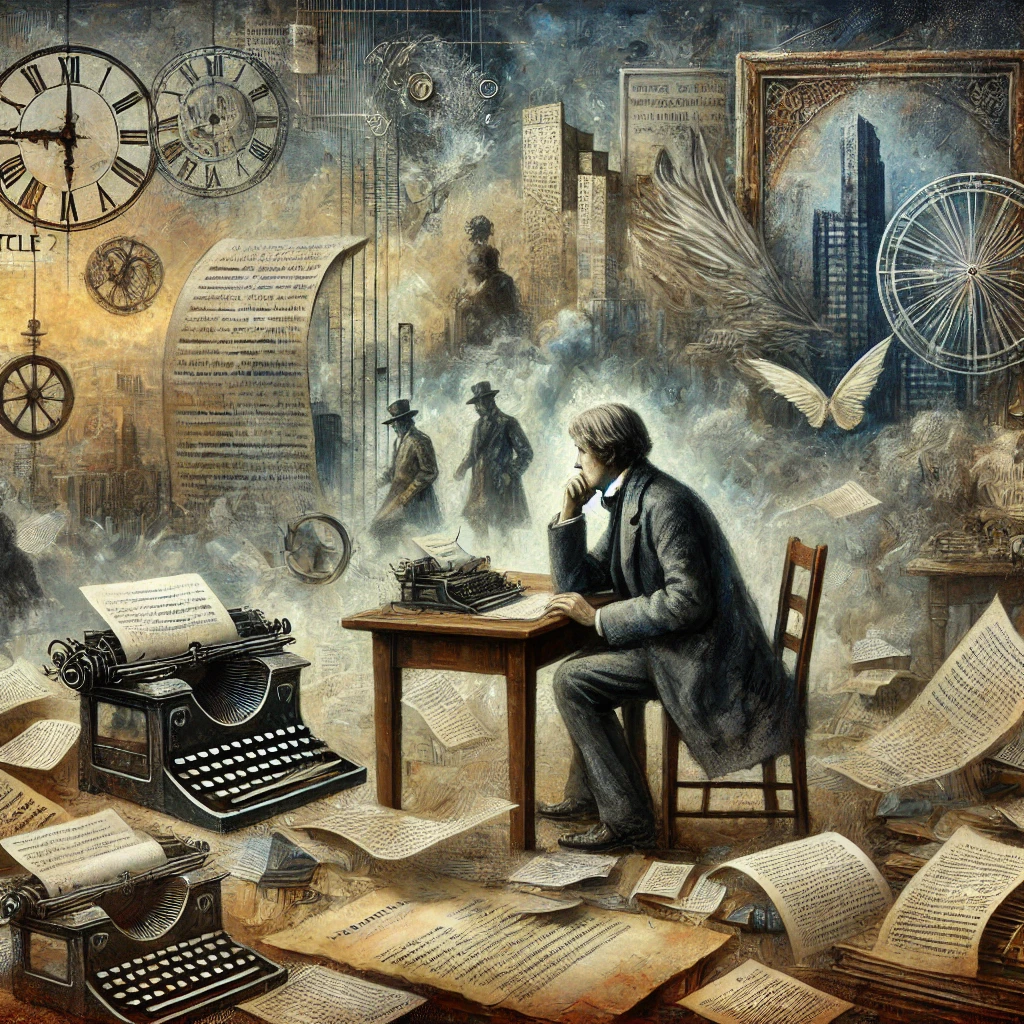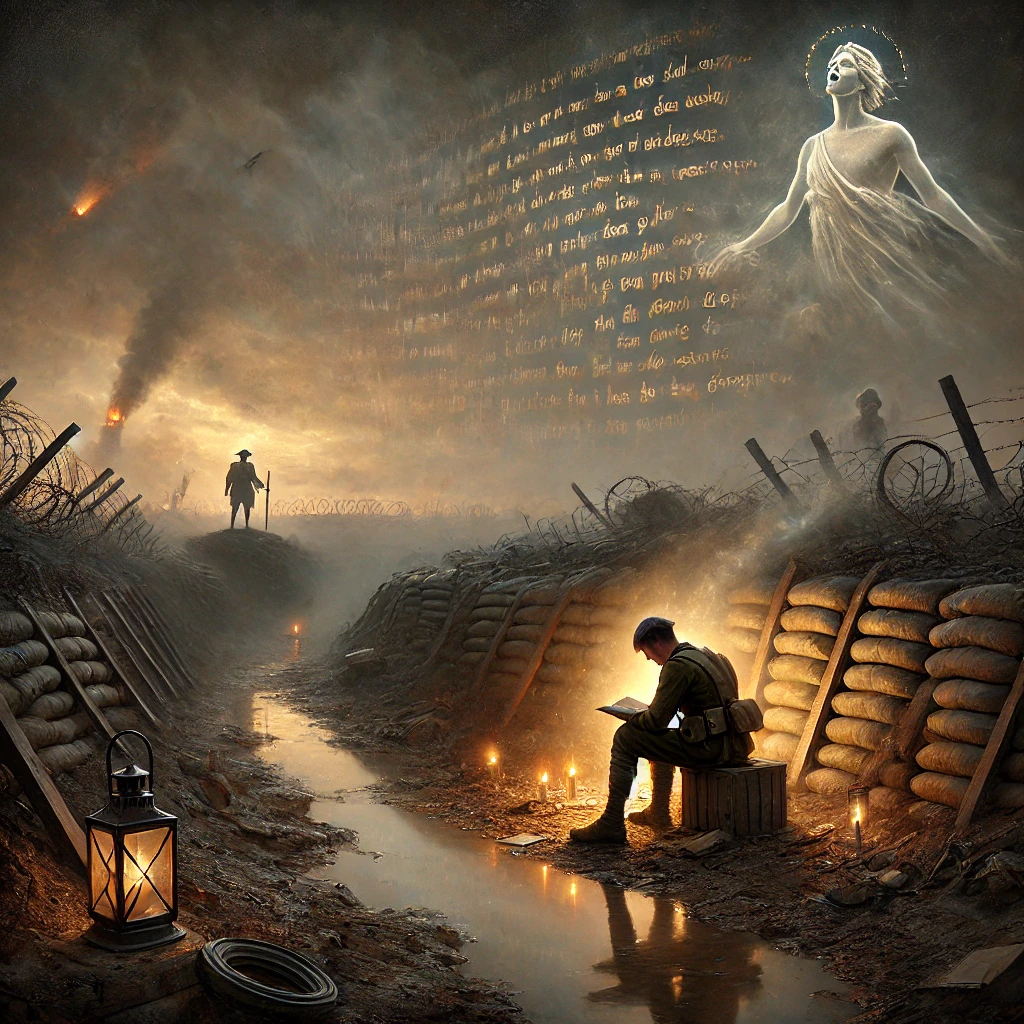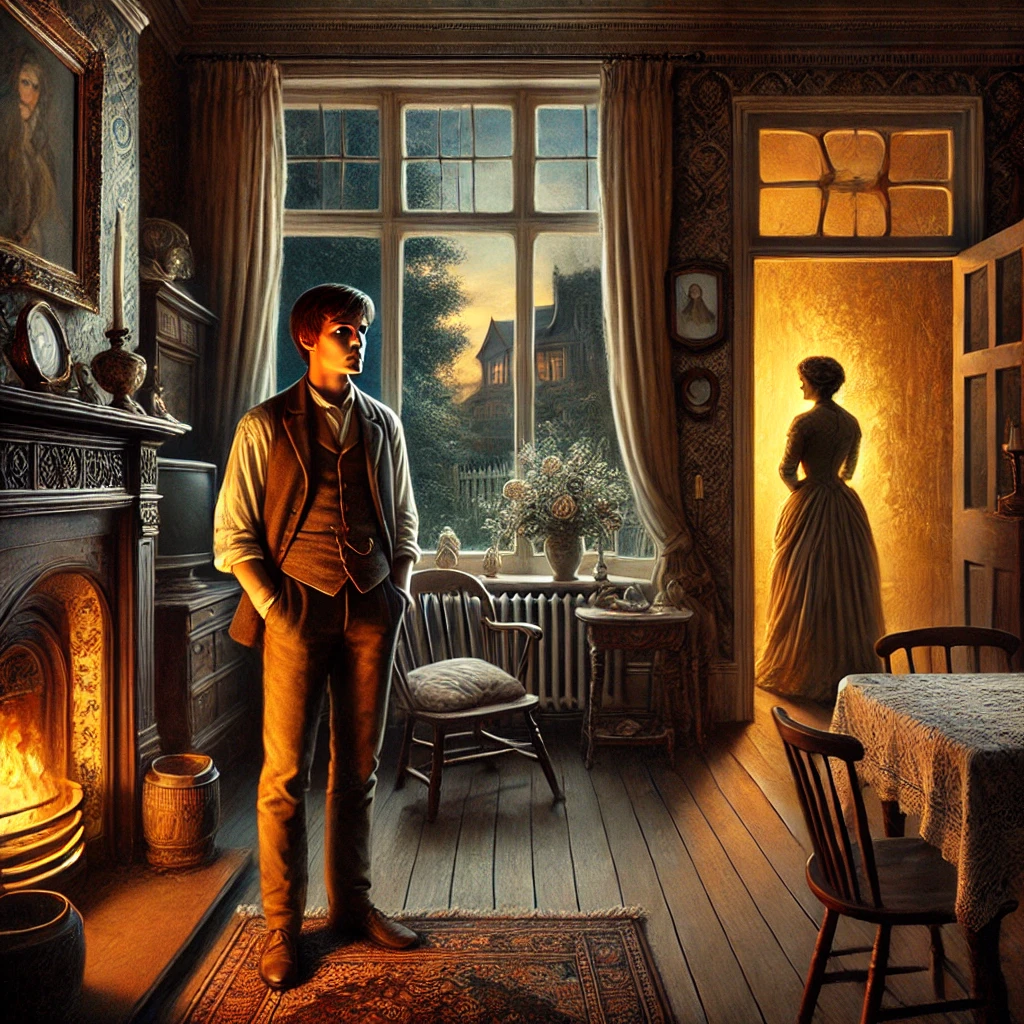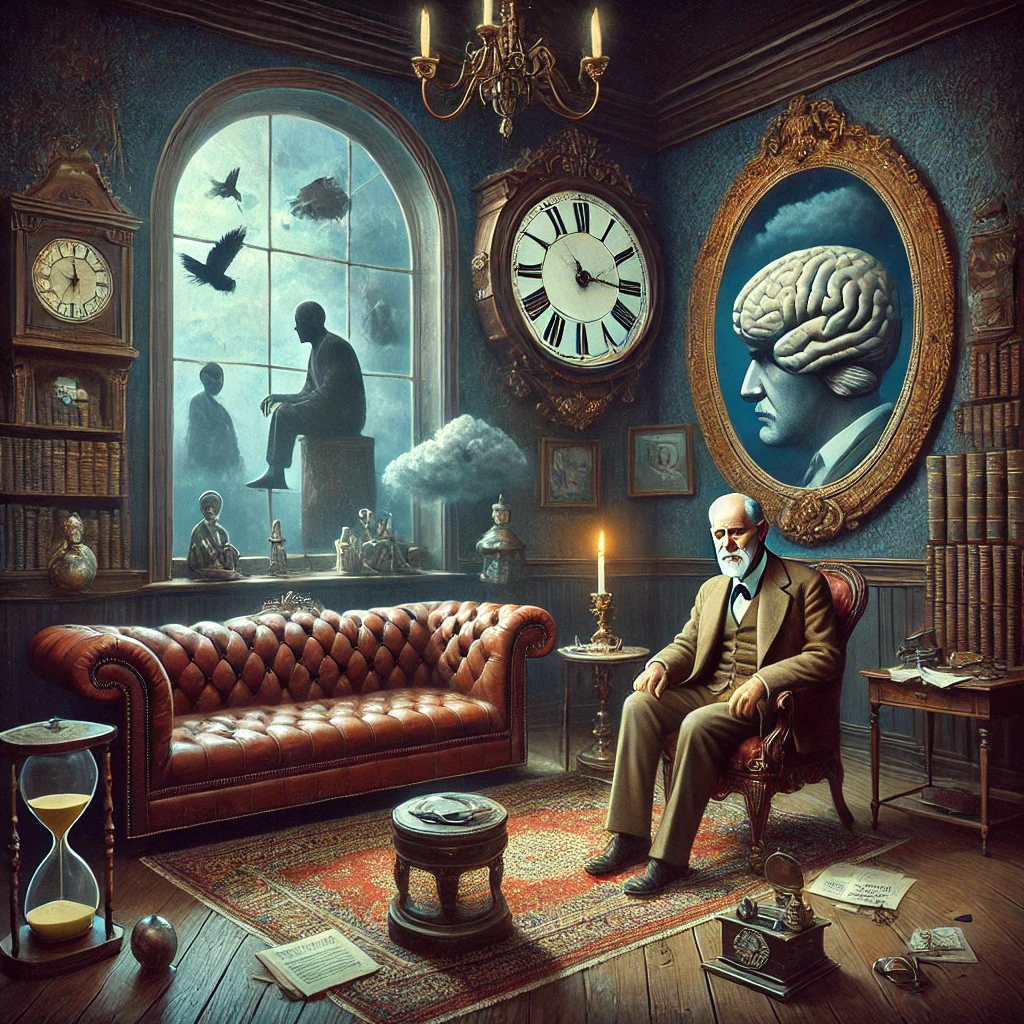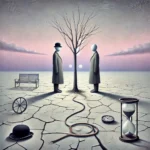By ABS, The Literary Scholar
A.K.A. The One Who Took a Wrong Turn in Wessex and Ended Up in the Wasteland
When Victoria Died and Modernity Showed Up Uninvited
In 1901, Queen Victoria finally took off her crown and slipped into eternal silence, leaving behind:
Half the globe colored pink on maps
A literary legacy soaked in lace and longing
And a generation of writers nervously glancing at steam engines and wondering what came next
Enter the Edwardian Era—a transitional hallway where literature hung up its corset and started poking around in unfiltered emotion, war trauma, and early psychology with a side of existential dread.
Thomas Hardy and the Tragic Maps of Wessex
We begin, of course, with Thomas Hardy—the man who invented Wessex, a place so persistently sad, it made rainclouds consider therapy.
Hardy gave us:
The Mayor of Casterbridge, a novel where one poor decision snowballs into a life of poetic misery
Tess of the d’Urbervilles, where fate, patriarchy, and a cow named Prince team up to destroy a girl
Jude the Obscure, which is basically “What if academia, marriage, and religion were all incredibly disappointing?”
Hardy didn’t believe in happy endings.
He believed in fate—cruel, cold, cosmic bureaucracy that had already stamped “DOOMED” on your birth certificate.
“Happiness was but the occasional episode in a general drama of pain,” he said,
and the Victorians, gasping faintly into lace handkerchiefs, nodded.
Then Came the War—And Poetry Lost Its Innocence
Just when literature was beginning to stretch its emotional limbs, World War I decided to kick down the door, throw everyone into trenches, and rewrite what it meant to write poetry.
Out went the sonnets about sunsets.
In came:
Mud
Rats
Gas masks
And the soul-splitting question: What are we even doing here?
The War Poets marched in, pen in hand:
Rupert Brooke, the handsome patriot, wrote:
“If I should die, think only this of me…”
And then he tragically did.
Siegfried Sassoon, who began poetic and ended scathingly angry:
“You smug-faced crowds with kindling eye / Who cheer when soldier lads march by…”
(Spoiler: he was not clapping.)
Wilfred Owen, the poet of gas attacks and broken youth, wrote lines like:
“My friend, you would not tell with such high zest / To children ardent for some desperate glory…”
Because he knew glory didn’t smell like gunpowder—it reeked of fear and trench rot.
These weren’t poems.
They were emotional grenades wrapped in verse.
When Modernism Arrived (and Everyone Got a Headache)
After the war, literature sat in the corner of a broken café, chain-smoking despair and wondering what just happened.
Enter Modernism—a movement that didn’t want to fix anything. It just wanted to observe the wreckage in beautiful, experimental syntax.
Modernism was:
Sentences cut mid-thought
Narratives with trust issues
Characters who were too emotionally exhausted to even become characters
Forget beginnings, middles, and ends.
Modernists preferred:
Disillusionment
Ambiguity
And long walks through intellectual ruins with a copy of Nietzsche and a sense of dread
W.B. Yeats: The Romantic Who Accidentally Became Modern
Before we drown in Eliot’s wasteland, let us pause with W.B. Yeats, Ireland’s finest brooding mystic and part-time lover of Maud Gonne, the woman he loved so obsessively, she became an entire subgenre of poetry.
“I have spread my dreams under your feet; / Tread softly because you tread on my dreams.”
Yeats tried everything:
Occultism
Politics
Mystical spirals of history
And proposing to Maud Gonne multiple times (she said no… gloriously, repeatedly)
His poems span from:
Romantic longing
To historical grief
To apocalyptic prophecy (“Things fall apart; the centre cannot hold…”)
Yeats was the bridge.
One foot in swans and longing.
One foot in modern chaos and symbolic falcons flying away into metaphorical oblivion.
T.S. Eliot: The Poet Who Broke the World and Then Analyzed It
Then came Thomas Stearns Eliot, who looked at a post-war world and thought:
“Let’s write poetry that feels like an existential panic attack inside a crumbling cathedral.”
Behold: The Waste Land (1922)
A poem so famously fragmented, it needed its own footnotes—and therapy.
Corpses in gardens
Drowned sailors
Broken lovers
Biblical echoes
And one guy who just wants a cup of tea but can’t emotionally handle it
“April is the cruellest month.. .”
Poets had written about spring for centuries. Only Eliot saw it as a sarcastic metaphor for false hope.
He also gave us:
The Love Song of J. Alfred Prufrock, in which a balding man panics about life and dares not eat a peach
Four Quartets, which is either time-traveling theology or a very elegant mental spiral
Eliot was a poet, playwright, essayist, and master of intellectual despair.
He didn’t just write poetry—he dissected the soul with Latin phrases and made footnotes fashionable.
D.H. Lawrence: When Novels Blushed, Bit Their Lips, and Refused to Apologize
If the Victorians whispered behind lace curtains, D.H. Lawrence kicked down the parlor door and shouted,
“Let’s talk about sex, mothers, and unresolved trauma, shall we?”
Lawrence believed in:
The body over the brain
Raw emotion over polite phrasing
And writing things that made critics sweat and censors sprint for their ink stamps
His greatest hits include:
Sons and Lovers – which sounds sweet, but is basically Freud’s Oedipus complex in literary form
Women in Love – love, wrestling, staring contests with psychological consequences
The Rainbow – full of emotional storms, desire, and identity crises
And of course, the once-banned, now-classic Lady Chatterley’s Lover—which asked:
“What happens when a woman finds her voice, her body, and a gardener named Mellors?”
Lawrence didn’t just explore relationships—he dug into the soul with both hands and didn’t sanitize the mess.
Freud Enters the Chat (and Everyone Gets Uncomfortable)
But none of this psycho-literary revolution would’ve been possible without Sigmund Freud—the man who looked at dreams, slips of the tongue, and awkward childhoods and said:
“Aha. It’s your mother.”
Freud gave us:
The Oedipus complex (thanks for that, truly)
The id, ego, and superego (aka: your inner chaos team)
And the idea that your subconscious is just one long scroll of repressed feelings, metaphors, and secret guilt
Suddenly, literature had a new toolkit:
Characters questioned their desires
Plotlines turned into case studies
Symbolism got deeply uncomfortable
And couches—yes, psychoanalysis couches—became more useful than desks
Authors didn’t just ask what happened.
They asked why, how, and who hurt you.
The Rise of Realism, Grit, and Literary X-Rays
Post-Freud, post-war, post-romantic delusions, the modern novel evolved into a space of:
Inner monologues
Fragmented timelines
Emotional striptease
And honesty so blunt it made Victorian ghosts shiver in their parlors
Themes included:
Alienation
Disillusionment
Sexual identity
Social critique
And tea being insufficient in solving deep-rooted trauma
Modern characters didn’t always grow.
Sometimes, they just stared out the window and felt things. For pages.
Final Thoughts Before We Spiral into Existentialism
The early 20th century wasn’t about answers—it was about questioning the entire structure of the literary universe.
It gave us:
Writers who bled on the page
Poets who wrote in fragments and flames
And thinkers who opened emotional floodgates literature didn’t know it had
The empire was fading.
God was missing.
Faith was shaky.
Freud was suspicious.
And literature?
It had never been more alive.
Final Scroll:
ABS closes the scroll gently, as if handling a dream journal full of war, whiskey, and whispered longings—then disappears into the modern mist, where nothing is certain, but everything still aches beautifully.
When the world broke, they wrote its fragments. And somehow, in all the ruin, meaning still murmured beneath the noise.
Signed,
ABS, The Literary Scholar
By ABS, The Literary Scholar
A.K.A. The One Who Waited for Godot and Brought Biscuits Just in Case
Share this post / Spread the witty word / Let the echo wander / Bookmark the brilliance

